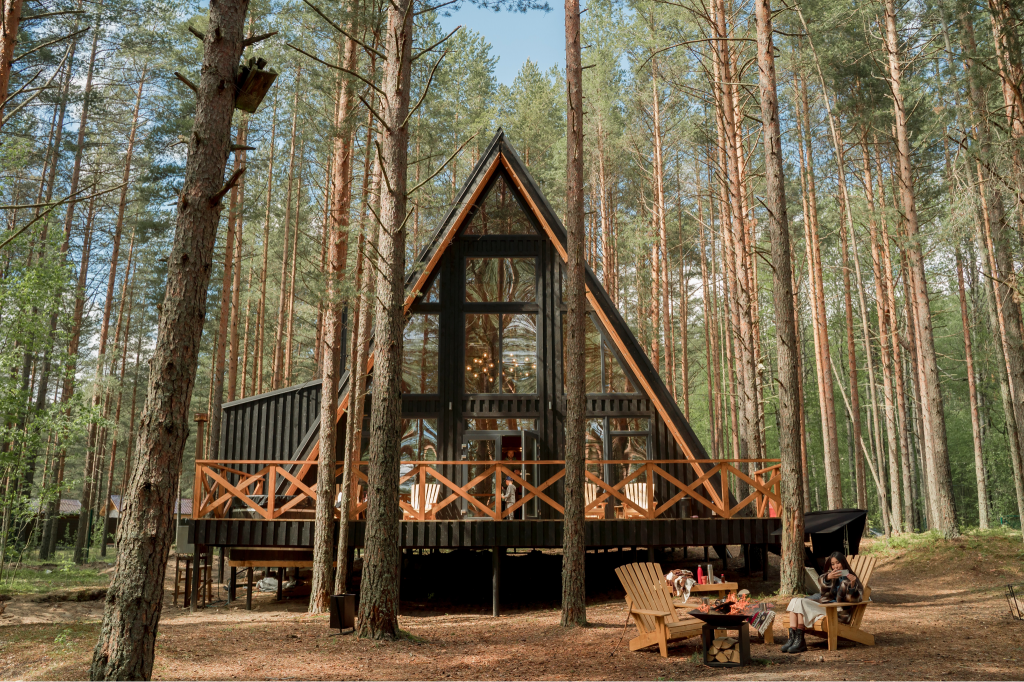Super Lawyers Honors 2025 Kotz Sangster Attorneys

Kotz Sangster is pleased to announce the recognition of our attorneys as 2025 Michigan Super Lawyers and Rising Stars.


Owning a vacation home can create complicated family estate and income tax issues. Planning for the transfer of the cottage requires a series of thoughtful steps. The cottage can be any vacation home and, whether it is a ski chalet or condo, waterfront property or hunting land, all have financial and emotional ties to a family. The difference between a client’s principal residence and the vacation home in their planning is usually quite clear. This article will describe many of the problems and solutions used by other families who have been down this road.
Cottages in the past represented a small part of an individual’s estate. However, with waterfront or mountainside properties increasing in value, they oftentimes become a substantial percentage of someone’s gross estate. Lake Michigan waterfront property is being sold for $2,500 to $5,000 per lakefront foot. A 2,000 square foot cottage can cost up to $750,000 or more on one of the Great Lakes or at a popular vacation area. Condos in desirable ski areas have also escalated in value. These second homes may increase in value faster than a principal residence and typically holds its value better in a depressed real estate market.
A cottage has many emotional ties that a principal residence doesn’t have. It’s used for family gatherings, vacations and holidays, which bring with it strong emotional memories. Children typically have their own residence, and having a cottage is not always within their financial means. The cost of purchasing the property and annual expenses, including real estate taxes, maintenance, decorating and utilities, are hidden expenditures paid for by the parents and not seen by the children. Some properties have been in the family for multiple generations.
Clients usually describe the cottage as a little place on the lake. It takes some time to develop a sense of fair market value of the property. One client said the house is run down and small, and not worth more than $50,000.00. The 200 feet of frontage on the class A inland lake which the house sits on is selling for $3,000 a lakefront foot. The house may be worthless, but the land is worth a fortune.
Other clients have indicated that their children should own the cottage at their deaths. This creates a series of questions which should be asked. Leaving the estate distribution issues for later in this article, the following questions need to be raised.
Not everyone in the family may want to own the cottage. A child may live in California and not feel it’s close enough to use it, or they want to have their own vacation home and not share it under the terms proposed. One client was shocked to find out after asking her children that no one wanted the cottage. If only some of the children want the cottage, how do you balance out the estate?
Having a second home costs money. The owner realizes the annual expenses, but quite often all the children see is the food in the refrigerator, the boat in the dock and the well-manicured property. After reviewing the economics of owning the property, many children decide that it’s not within their financial means to have the cottage. The average annual expenses for a cottage can be $10,000 or more a year.
Use of the property can create family disharmony. A three-bedroom lakefront home may sleep 8 to 12 comfortably. If you have 3 or 4 children plus grandchildren, not everybody can be there at the same time. Holiday weekends, school vacations and work schedules each need to be accounted for by the families. Without a game plan in place, the scheduling logistics will create an issue.
Different economic positions of your children can create problems. Everyone may feel comfortable with the normal annual expenses. However, extraordinary expenses could create economic hardship. A new roof or a well may create financial problems. The strain of a second home may be a burden when college expenses, weddings or a divorce take place. Not having a written exit strategy will create a family fight.
Finally, how will the property be owned by your children? If the property is deeded to the children as tenants in common, the number of fractional interests will increase over time. What started with each child owning a 1/3 interest will eventually have grandchildren owning a 1/18 interest demanding to use the property on July 4th every year. Divorces or deaths could transfer ownership to a former family member.
These questions usually cause one spouse to have a glassy look on their face. They just want everyone to be happy and get along. The other spouse usually nods along with the questions. They already knew what was going to be asked but didn’t know how to ask it. Raising the questions may lead to more questions but could lead to a potential solution.
Talking to your children about the cottage and the ownership is crucial. Initially, don’t worry about the economics of owning the vacation home or the estate tax effects. It’s important to first determine who has an interest in owning the property. Also, you need to discuss that they could be sharing the house with siblings. This will mean sharing in the expenses of the property. This first step will sometimes eliminate some of the children from wanting to own the property. Some children will not want to share (they may be adults but they are still your children) the vacation home. Others may realize that they don’t have the time to enjoy the property, or are only currently visiting it because of you.
Once you have a better grasp of who wishes to own the house, there are a number of ways to develop a game plan. Estate and gift taxes must be considered. The economics of owning the property need to be discussed. Also, if not all of the children will participate in the ownership of the property, you may need to equalize the distribution of your estate.
The economics of maintaining the house after you are deceased is an important hurdle to overcome. The child who wants to use to property may not be able to afford it. If one child uses it once year, and another visits it regularly, a question arises as to how to fairly split expenses. The question of economics can create family disharmony long after you are deceased. Planning ahead will help eliminate the problems.
Marv and Shirley Sims own a cottage on Lake Michigan currently worth $400,000. The 3-bedroom house sleeps 8 people. There are three adult children and 5 grandchildren. The Sims gross estate is currently $1,400,000. Two of the three children want the house. The third child lives in Arizona and has no children. Sally, their oldest lives in Michigan and is a school teacher. She has two children. Alan, also in Michigan, is a dentist and has three children. Sally and Alan visit the cottage regularly. Sally stays for the month of July while her husband commutes on the weekends. Son John is a computer software designer in Scottsdale and has no interest in the cottage.
Sally’s main concern is about sharing and managing the cottage. She is not concerned about Alan but his wife Beth. They always want to use the cottage on holiday weekends. As the family expands, the number of conflicts will increase. Sally also pointed out that upon her death she wants her two children to own her interest. Eventually, there will be a number of fractional owners who want to use the property at the same time, or want to be bought out.
One way of solving Sally’s concerns is to treat the cottage like a business. The form of ownership could be a partnership or a limited liability company. The property is not owned by individuals but by the entity. The partners enter into an agreement defining when the property is being used, financial management, succession planning and buyout provisions. The agreement can be set up by Marv and Shirley with specific details about how the property is transferred at death with a requirement that any heir wishing to participate become a member or partner of the entity owning the cottage.
A limited liability company (“LLC”) can be a perfect entity to own the cottage upon the death of Marv and Shirley. The LLC owns the property with the children who have opted in to be the members. The LLC Operating Agreement will indicate who the manager of the company is and provide for election of a new manager. LLC’s have operating agreements which are the bylaws of how the property can be used and by whom. The financial aspects can include the annual expenses and contributions, what happens if someone wants to be bought out and what happens when each member dies. Laying out specific rules helps smooth the use of the property. Agreements can also specify how each member chooses the time frame they are allowed to use the cottage. This eliminates fights over using the property during holidays and the summer.
Payment of the expenses can be done a number of different ways. The parents can fund the LLC by contributing a portion of their estate to the LLC. Another option is having a life insurance policy proceeds available to fund the LLC. If the parents are unable to help fund the LLC, the company operating agreement can provide for an annual budget to be approved by the members, along with rules describing when annual contributions need to occur and what happens if the members don’t contribute.
This, of course, doesn’t cover the estate tax or estate planning issues. The size of the estate will create different issues. It may be prudent to transfer the property to the children during the client’s lifetime by creating a Qualified Personal Residence Trust, a Family Limited Liability Company or other estate planning tool. However, before the taxes can be dealt with, the personal issues need to be resolved.
Leaving the ownership of the family cottage to chance will eventually lead to family disharmony. Investing the time and effort to plan who wants to own the cottage, how to make it financially stable, and share the use of it successfully, will allow a family to use the property for generations.
If you would like more information regarding these planning ideas, please feel free to contact authors Jeff Sternberg and David de Reyna or your Kotz Sangster estate planning attorney for a complimentary consultation.